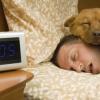Decided to put my reply on this thread, don't want to hijack that thread with my post
You certainly gave *me* something to think about here with this as well - could you by chance have a look at my case as well?
--
How the h*ll am I going to solve this...? I need both Modafinil, Gabapentin and especially Atomoxetine to function - but they are reluctant to give me ample treatment.
Should I just accept their idea that I'm bipolar NOS and try to live as a sick-pensioner for the rest of my life? Because honestly, Quetiapine doesn't help - in any way.
(it should be noted that the evaluation for affective disorders have barely started, I've merely done the first basic essay)
On addforums.com there seems to be plenty of ADDers with bipolar II on Strattera or stimulant, even occasional bipolar I on stimulant, so with bipolar NOS, I would imagine that amoxetine can be added back at some point, once proper bipolar medication has been found.
Some of the common sleep aide mechanism are don't seem to do anything for your actual circadian clock, for example antihistamines' H1 antagonism doesn't seem to do anything to your clock.
http://journals.plos...al.pone.0144694
On the Role of Histamine Receptors in the Regulation of Circadian Rhythms
The aim of this study was to examine whether histamine mediates its effects on the circadian system through Hrh1 or Hrh3 receptors. We assessed both diurnal and free-running locomotor activity rhythms of Hrh1-/- and Hrh3-/- mice. We also determined the expression of Per1, Per2 and Bmal1 genes in the suprachiasmatic nuclei, several areas of the cerebral cortex and striatum under symmetric 24 h light-dark cycle at zeitgeber times 14 and 6 by using radioactive in situ hybridization. We found no differences between Hrh1-/- and wild type mice in the length, amplitude and mesor of diurnal and free-running activity rhythms as well as in expression of Per1, Per2 and Bmal1 genes in any of the examined brain structures.
Insomnia drugs that don't do anything to your circadian clock might be useful for insomnia where anxiety messes up your sleep but your circadian clock is doing just fine. But if your sleep disorder is of more circadian by origin, then these kind of insomnia drugs are of little value.
In lithium we have a true circadian heavy weight contestant
https://ahro.austin..../1/15850501.pdf
Low doses of lithium carbonate reduce melatonin light sensitivity in healthy volunteers
Sensitivity of the pineal hormone melatonin to bright light at night has been posited as a putative marker of affective disorders. Research demonstrates melatonin supersensitivity to light in bipolar disorder, however the role that lithium carbonate plays in this response is unclear. This study assessed the effect of lithium on nocturnal melatonin secretion and sensitivity to light in healthy adults. Ten participants, tested on two nights, had blood samples drawn between 20:00 and 02:30 hours. On testing nights participants were exposed to 200 lux of light between 24:00 and 01:00 hours. Participants took 250 mg of lithium daily for 5 d between testing nights. The results indicated that lithium had a significant effect on sensitivity to light but not on overall melatonin synthesis. This finding has implications on the true magnitude of the melatonin light response in people with bipolar disorder and may elucidate possible mechanisms of action of lithium.
Before lithium treatment, melatonin levels collapsed from pre-light to post-light by 55%, after 5 day lithium treatment, melatonin levels didn't collapse, they actually increased by almost 4%, like they usually do at that time of night.
250 mg is pretty low dose, considering that apparently most bipolar I patients start on 900 mg or so and some of them go up to 1800 mg, also I think it would take more than 5 days to get to maximum concentration, more like 7, but since they measured lithium blood levels, from research point it was perfectly fine for them to hurry up, but in effect same results might have been achieved with just like 220 mg and longer build up time, so this dose was really small compared to usual bipolar I dose. The 300 mg lithium carbonate tablet is usually round, which probably makes it pretty pill cutter friendly. You could try to get prescription for sub-BPI dose lithium carbonate, and see if that does anything.
Lithium also increases slow wave sleep.
http://www.fil.ion.u... wave sleep.pdf
Also sodium valproate seems to have similar effect in this light experiment.
http://www.nature.co...l/1300739a.html
Effect of sodium valproate on nocturnal melatonin sensitivity to light in healthy volunteers
Overall, especially compared to some other bipolar medication, quetiapine doesn't seem to be really circadian bipolar medication by it's profile. It's affinity on 5-HT2C receptors is rather weak compared to other receptors etc.
https://en.wikipedia...ne#Pharmacology
http://www.sciencedi...028390894900779
http://www.sciencedi...00689939800746X
http://www.longecity...158#entry798281
I take melatonin at 21.00 hours, along with Mirtazapine, but it doesn't seem to be enough...
I'm thinking I need to start taking melatonin EVEN earlier...! Perhaps take blue-light filtering to the next level, and get some glasses. Some SCT-ers on ADDforums have reported relief from sleep-issues if, and ONLY, if, they go to sleep BEFORE 21.00 hours! Apparently there's something wrong with our circadian rhytms, on a fundamental level - if we don't sleep before these hours, then it doesn't matter if we sleep 10-11 hours - we STILL won't enter deep-sleep...!
It's truly aggravating this... Hopefully my Gabapentin shows up soon, because I'm at my wits end with this. In theory, it should do the trick... but in theory, so should Clonidine have, and it wasn't enough! I actually woke up a LOT on that one...! In theory, Alpha-2-agonists are SWS-enhancing, but apparently not enough. (in theory, so is Mirtazapine, but it's not enough for me - higher dosages actually seem to wake me up MORE, from Alpha-2-ANTagonism, d'oh!)
Early evening melatonin taken around 5-7 pm supposedly stimulates pineal gland's own melatonin production much more than melatonin taken before sleep
Article in Finnish, though Chrome's English translation seems understandable, also some English articles listed at the end of that article.
http://www.etlehti.f...ohtavat-harhaan
For me, taking melatonin between 5-7 pm then also before sleep worked at first really well, then I think I got some Advanced Sleep Phase issues from it, though I kept increasing the dose as part of my experiment to see if larger dose would have made things even better, so it could have been the dose increase that messed thing up, not the 5-7 pm time necessarily, maybe if I had kept the early evening dose at 0.5 - 1 mg, things would have been better, or maybe skipping the before bed dose would have prevented those issues, not sure. But individual response varies, so I'm sure plenty of people can do early evening melatonin without issues. You could try that also.
http://www.sciencedi...031938496800072
Clonidine shortens circadian period in both constant light and constant darkness
This one was on rats just like the next lithium one was.
http://www.sciencedi...024320580900910
Lithium slows rat circadian activity rhythms
https://www.research...53637538ef1.pdf
Lithium lengthens circadian period in a diurnal primate, Saimiri sciureus
http://journals.lww....riod_of.42.aspx
Lithium lengthens the circadian period of individual suprachiasmatic nucleus neurons
http://www.nature.co...l/1300764a.html
Lithium- and Valproate-Induced Alterations in Circadian Locomotor Behavior in Drosophila
lithium and valproate share effects on the circadian locomotor activity of Drosophila: they lengthen the period of circadian rhythms
So in this aspect, bipolar meds lithium and valproate are kinda opposite to clonidine, so clonidine not giving desired results or even being worse than nothing might be expected for bipolar.
Edited by Finn, 19 December 2016 - 06:50 PM.





























































